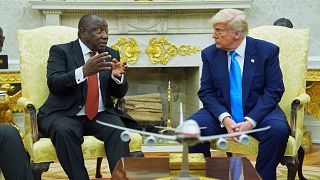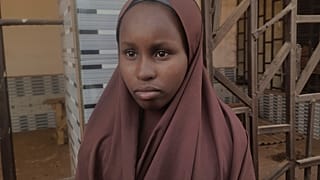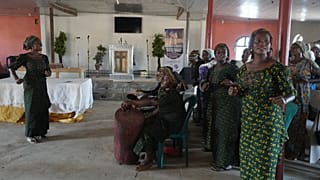South Africa
South Africa’s Deputy President Paul Mashatile has urged white farmers, particularly Afrikaners, to remain in the country and work with the government to overcome challenges facing rural communities. His comments come in response to the departure of 49 white South Africans who were resettled in the United States as refugees this week under a policy initiative driven by President Donald Trump.
Speaking at the National Maize Producers Organisation (NAMPO) Show – Southern Africa’s largest agricultural exhibition – Mashatile sought to reassure the farming community of the government's support.
“The farmers that we have met here today are saying they are happy to stay in South Africa,” Mashatile said. “All they need is for us to work with them to address the challenges they face. One of them is rural roads... Then there's rural safety because we know over the years, people in the farming communities have been attacked, and crime has been rife. They want us to work with them on that.”
Mashatile emphasized that the government does not want Afrikaner farmers to leave the country, highlighting their essential role in agriculture and national development.
“We're not going anywhere, and we do encourage those who are leaving to please stay. There's no need to leave — let's build this beautiful country,” he added.
U.S. Refugee Policy Reignites Controversy
The latest migration of white South Africans to the United States has reignited a long-standing controversy over race, violence, and political rhetoric. According to the U.S. State Department, the group of 49 Afrikaners brought to the U.S. as refugees qualifies under asylum laws and fulfills priorities set by President Trump.
“This has been a concern that the President has had for a very long time,” said Tommy Pigott, Principal Deputy Spokesperson at the U.S. State Department. “He’s been clear about that for years – about the abuses we are seeing in South Africa. So this is a priority outlined by the president.”
Pigott insisted that the recent refugee arrivals “met the same standard that is across the board for refugees.”
Trump’s Genocide Claim Sparks Diplomatic Tension
Earlier this week, President Trump made headlines by accusing South Africa’s government of allowing a “genocide” of white farmers – his harshest statement yet since returning to office. The claim, which has been widely disputed, represents an escalation in Trump’s broader criticism of South Africa’s Black-led government, which he has repeatedly accused of enabling anti-white racism.
South African officials have rejected these accusations, calling them inflammatory and inaccurate. The government maintains that while rural crime is a national concern, violence affects all communities regardless of race, and policies are aimed at addressing security for everyone.
Historical and Political Context
The issue of white farmers in South Africa remains a sensitive topic in the country’s post-apartheid landscape. Land ownership, rural development, and safety have long been at the center of political debates. While crime in farming communities is a documented problem, analysts caution against using it to draw racially charged conclusions or justify migration narratives without nuance.












02:13
Volunteers help clean the polluted Jukskei River "prone" to flash floods
Go to video
Matt Smith becomes South Africa’s first winter Olympian in years
01:00
Ivory Coast experiences increased refugee influx from Mali conflict
01:00
Pix of the Day: November 14, 2025
01:13
South Africa announces plan to bid for 2036 or 2040 Olympic Games
01:31
South Africa starts clinical trials on first locally developed oral cholera vaccine